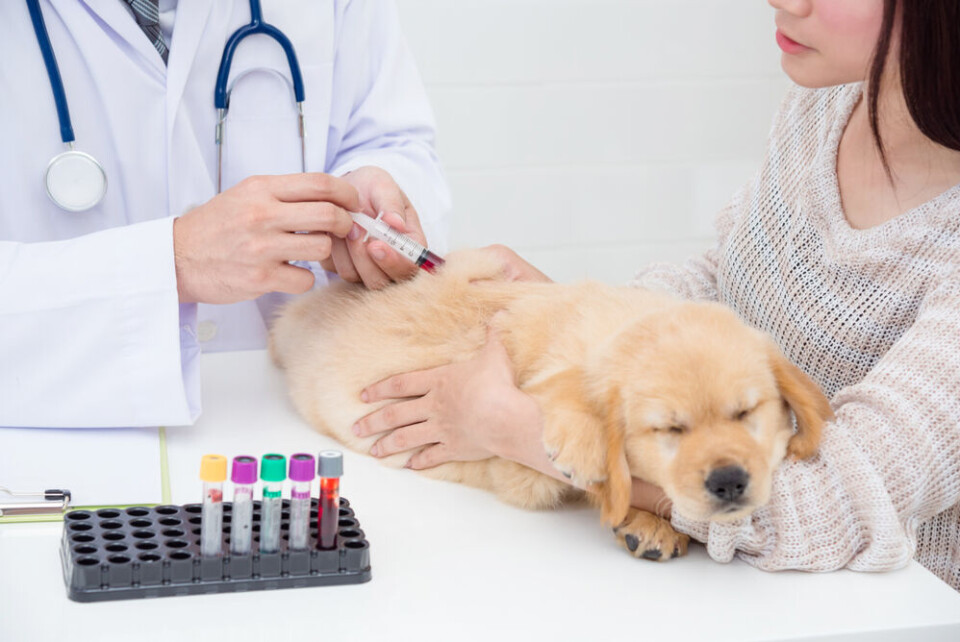-
What do I need to do if my pet dies in France?
French regulations require animals to be cremated
-
Barking dogs in France: when noise becomes a nuisance and how to take action
There are nearly 7 million dogs in France and their barking is a common problem
-
How I acquired a purebred puppy in France
Columnist Sue Adams looks forward to years of companionship with a new Jack Russell terrier
How your cat or dog can also be a blood donor in France
Blood donations by pets are vital to help treat sick or injured animals. We explain how to sign up your pet

French vets have issued a reminder to pet owners that animals can also donate blood, which can be used for life-saving operations on animals across the country.
Donations – which take between 30-45 minutes – provide blood which can be stored for up to one month, and are accepted from both cats and dogs.
Whilst stocks are not critically low, vet Patrick Verwaerde said that not many people know about the process, and there can be problem periods – such as in summer – where supplies are limited.
“I work at a university veterinary hospital, and most donations come from the animals of students and staff,” he said, before adding that “in summer, there are fewer people, so fewer donations.”
Which animals can make donations?
All healthy cats and dogs can make donations, although blood from ‘adult’ pets ( over the age of one, and under six or seven) is preferred.
Your pets must have also never received a blood transfusion before, or have any infectious diseases.
Pets that give blood are usually around 15 kgs if a dog, or 5/6 kgs if a cat.
The type of breed does not matter, but both cats and dogs have blood types, just like humans.
Dogs have eight different blood types; four types with both positive and negative versions – the same as humans, cats have three.
However dogs can generally receive blood from any group for a first transfusion although vets do prefer to always use blood from the same blood group.
Pets will need to have a preliminary exam to check they pass the criteria to give blood, as well as to ascertain their blood group.
You can ask your vet for more information about signing up your pet.
All vets are trained in taking and giving blood so yours may be able to give blood at your local surgery.
Some clinics do not have the facilities to store blood, so have other local contacts who can collect the blood as soon as it has been given.
If not, the vet can help you arrange an appointment elsewhere.
Read more: SOS appeal to find owners of three-legged cat found in Normandy
How does an appointment work?
Appointments usually last around 30 minutes, and involve taking blood from the jugular vein – pets will need to have a part of their neck shaved for the needle to enter.
Most of the time, your pet will need to be sedated, although some dogs, if they can remain extremely still for the duration of the appointment, do not.
Some cats will need to be put under anaesthetic for the appointment.
“One thing is for sure: we won't accept a blood donation if the animal is aggressive," said Anthony Barthelemy, a veterinary surgeon at the Hopia clinic in Guyancourt (Yvelines).
If your pet is aggressive, or gets easily stressed, it is also not recommended that you volunteer them.
Once your pet has given blood (and if having been sedated or put under, is awake again), they will be given some food and remain under observation for an hour or so at the clinic before being allowed to leave.
How is the blood donation used?
Blood will be sent to one of the 15 animal blood stocks kept in animal hospitals in France, where experts can effectively treat it to make it ready for donation (for example, by separating plasma and red blood cells).
However as blood can only be stored for around a month a constant supply is required.
Blood is often needed for emergency situations, as well as for routine operations, or for sick animals who suffer from certain illnesses.
The information about the owners of both pets involved in a case remains anonymous, just as it does for humans.
Related articles
1,104 dog owners in French town give pet DNA so mess can be traced
























